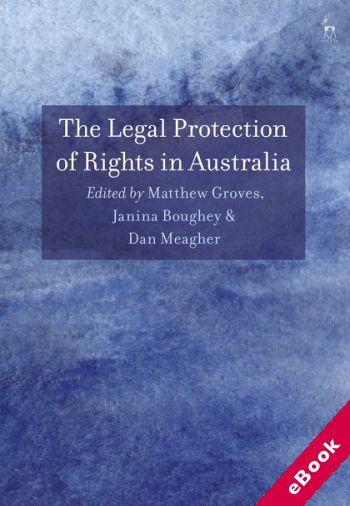
The device(s) you use to access the eBook content must be authorized with an Adobe ID before you download the product otherwise it will fail to register correctly.
For further information see https://www.wildy.com/ebook-formats
Once the order is confirmed an automated e-mail will be sent to you to allow you to download the eBook.
All eBooks are supplied firm sale and cannot be returned. If you believe there is a fault with your eBook then contact us on ebooks@wildy.com and we will help in resolving the issue. This does not affect your statutory rights.
How do you protect rights without a Bill of Rights? Australia does not have a national bill or charter of rights and looks further away than ever from adopting one. But it does have a range of individual elements sourced from common law, statute and the Constitution which, though unsystematic, do provide Australians with some meaningful rights protection. This book outlines and explains the unique human rights journey of Australia. It moves beyond the criticisms long made of the Australian position – that its 'formalism', 'legalism' and 'exceptionalism' compromise its capacity for rights protection – to consider how the many elements of its novel legal structure operate.
This book analyses the interlocking legal framework for the protection of rights in Australia. A key theme of the book is that the many different elements of a fragmented scheme can add up to something significant, albeit with significant gaps and flaws like any other legal rights protection framework. It shows how the jumbled influences of a common law heritage, a written constitution, differing paths taken by jurisdictions within a single federal state, statutory and common law innovations and a strong dose of comparative legal influences have led to the unique patchwork of rights protection in Australia. It will provide valuable reading for all those researching in human rights, constitutional and comparative law.